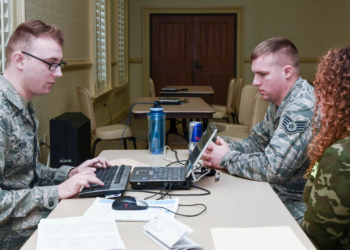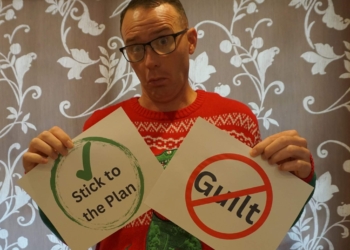Military-affiliated entrepreneurs who earn self-employment income face unique challenges when seeking a home loan. It isn’t impossible, but it will be what is considered a documentation burden.
Bryan Bergjans is Senior Vice President of Military Lending for Caliber Home Loans. He’s also a Navy Reserve officer, so he completely understands military life.
“Self-employed borrowers have different challenges when seeking mortgages. It is an administrative marathon for them to get home loans,” Bergjans said.
The reason for this is that self-employed borrowers must prove their business is stable, so that they can ensure you can pay your bills. They also want all of this documentation to demonstrate you have a proven track record of paying your debts.
Bergjans explained that they have to have audited documents by a certified public accountant, or CPA, which makes income checks take a little longer. He also said that some business owners will pay themselves through W2’s, but that it isn’t enough. The underwriter will still want to see a profit and loss statement along with tax returns.
“A lot of self-employed borrowers are misguided in the process because they don’t know they have to provide that stuff,” Bergjans shared.
He also explained that when seeking a home loan, you must have been self-employed and showing that income on your tax returns for at least two years.
“We want to see a two-year work history of you running your own business. Sometimes you can get approved in a year and a half if you’ve just transitioned from the military and may be in the same line of work, but otherwise, two years is standard.”
Bergjans also stressed the importance of showing finances that are organized and doing well. Without those two things, securing a home loan will be difficult. This means that the self-employed borrower needs to ensure that their income hasn’t fluctuated too much. Significant decreases in documented income could disqualify the borrower.
The borrower’s debt to income ratio must also be around 43% or lower. This is to ensure that all of your debts are actually manageable. Another thing a self-employed borrower should be mindful of is not writing off too much on expenses. This is because lenders will look at income after expenses are deducted, which could impact approval.
The VA handbook includes all things VA loans and there is a chapter specifically devoted to those with self-employment income. In that handbook, it implicitly says that the financial documents that the borrow presents must be sufficient for a loan underwriter. But regardless of whether the borrower does a VA or conventional loan, the requirements for documentation remain the same.
Bergjans had one last strong piece of advice for the self-employed military community: “Your income really matters. It’s really important that you make sure that your business is healthy.”
Though all the documentation may be daunting for those who are self-employed, it isn’t impossible. Caliber Home Loans has a dedicated team of professionals in their Military Lending division that are dedicated to helping you achieve your dreams of home ownership.







































